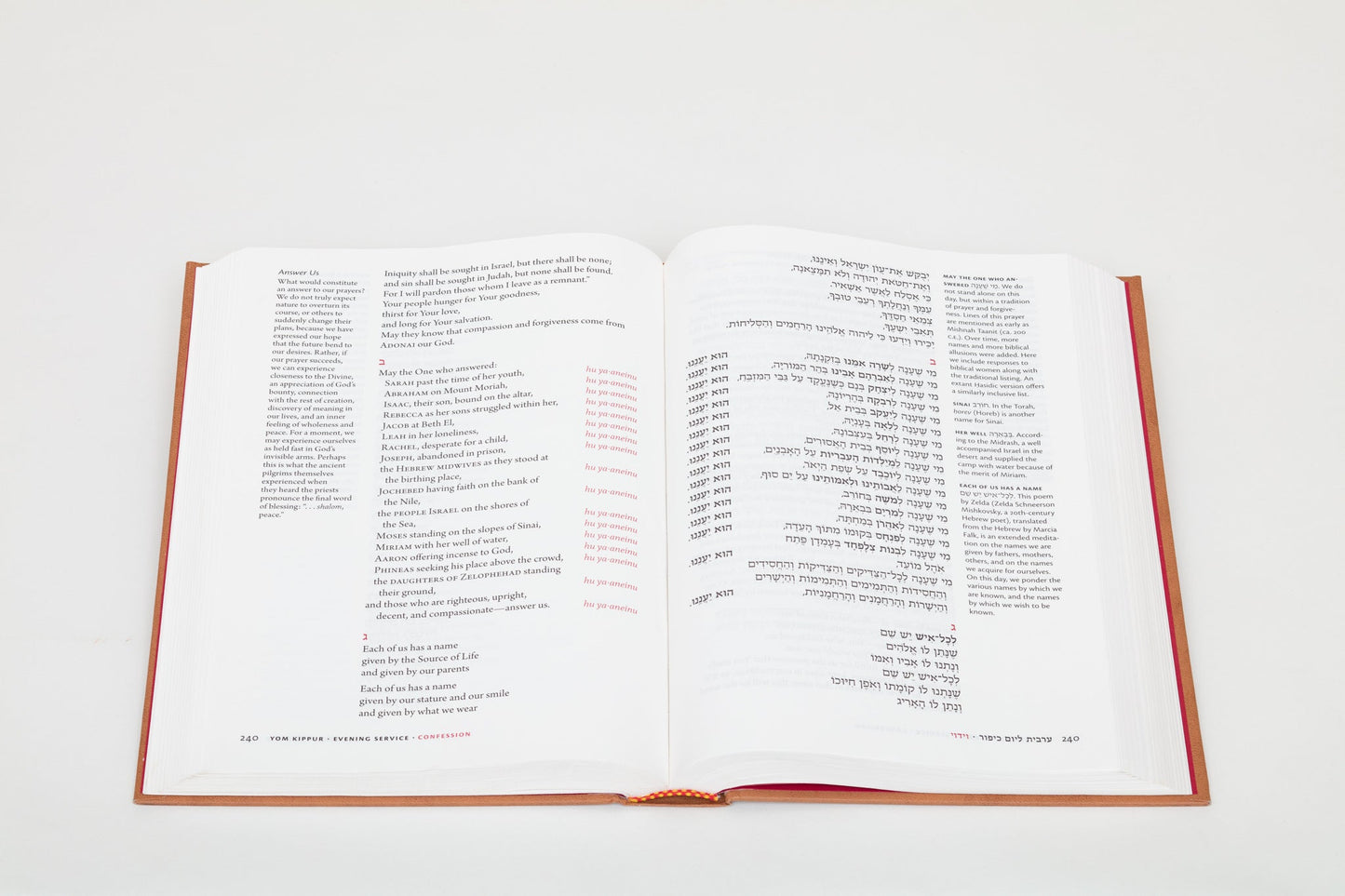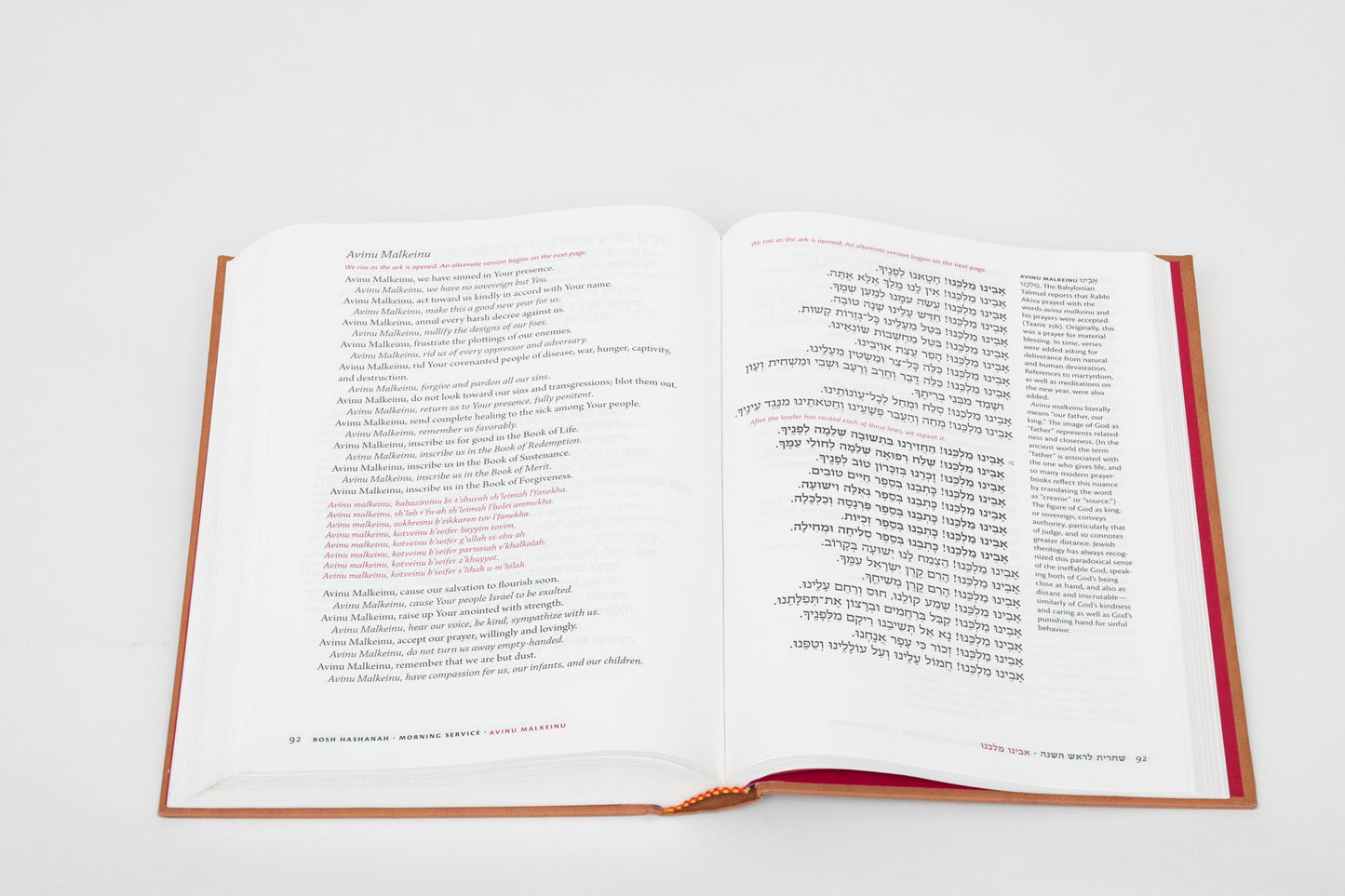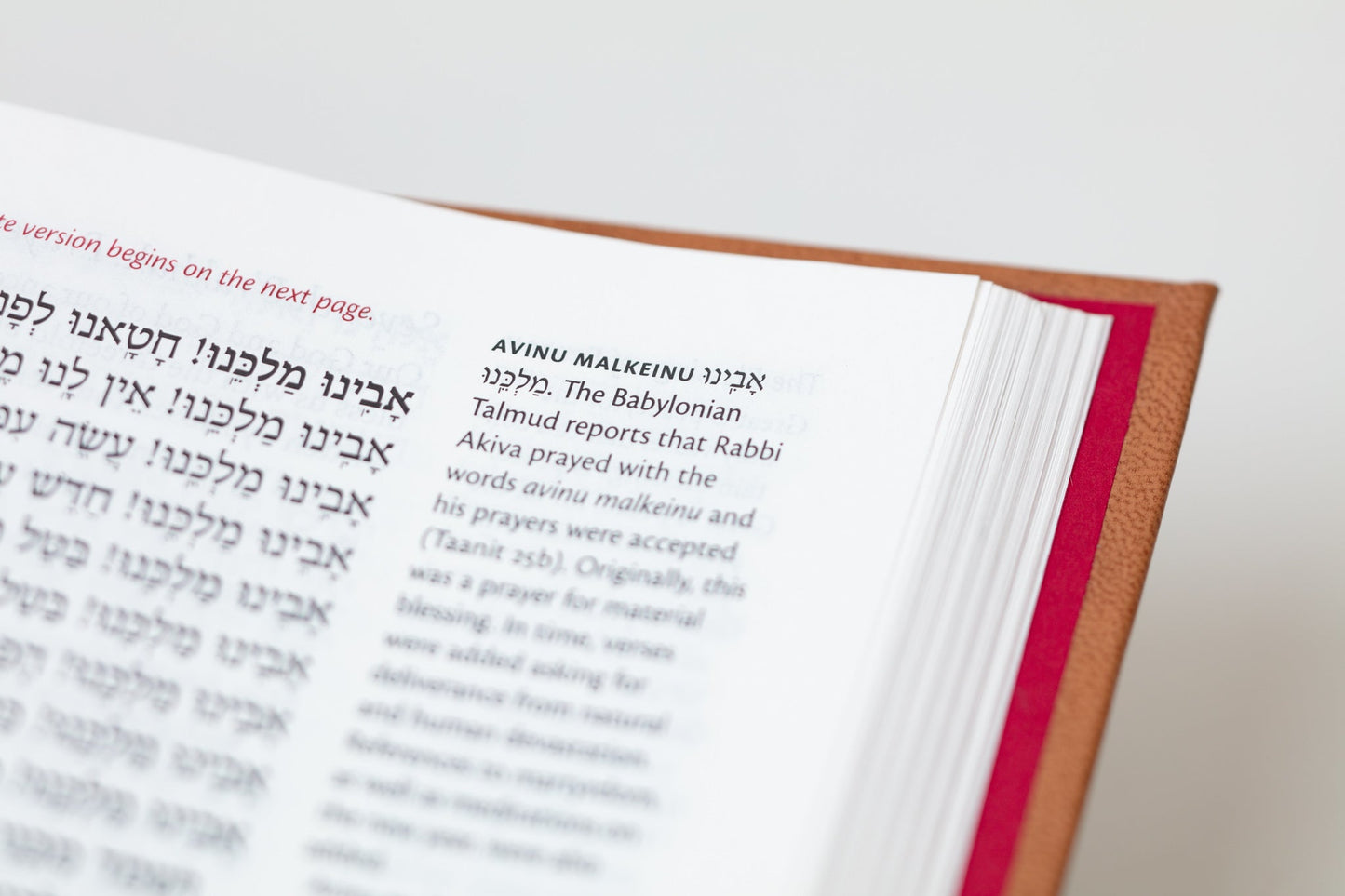Mahzor Lev Shalem: Rosh Hashanah & Yom Kippur (Pulpit Edition)
Couldn't load pickup availability
The pulpit edition of the Mahzor Lev Shalem: Rosh Hashanah & Yom Kippur, in one book perfect for the pulpit. The font is enlarged by 29%.
Please note: Both the pulpit edition and the large print edition have the same enlarged text, however, they have different bindings for different purposes. The pulpit edition is the full mahzor bound in one hardcover volume. As such it is quite heavy & best suited for leaving on the pulpit; in most cases, it is not fit for personal prayer. For a large print edition, please see Mahzor Lev Shalem: Rosh Hashanah & Yom Kippur (Large Print).






A unique and contemporary prayer book for the High Holidays. A four-column format on each page features the Hebrew text and a contemporary English translation in the center of the page, with commentary and supplementary readings on the outer.
In the decade since its publication, Mahzor Lev Shalem has sold nearly half a million copies and become a treasured companion to the Days of Awe for Jews around the world.
Mahzor Lev Shalem speaks to the contemporary concerns of our congregants. The book represents the best of the Conservative movement—the classical and the contemporary, the historical and the spiritual; it promises to be inspiring and relevant for years to come.
Key features include:
• A commentary in the right-hand margin accompanies the ancient text to explain important themes, and includes many historical notes and discussions of key Hebrew terms.
• Kavanot and poetic selections are found in the left-hand margin, comprising an anthology of biblical and rabbinic sources, as well as poetry from both the Middle Ages and modern writers (from both Israel and the Diaspora).
• English transliteration of prayers recited out loud or sung by the congregation
• Instructions that enable the reader to easily follow the service
More Information
-
Physical Description
Hardcover, 468 pages
12 x 8.75 x 2 in., 6.3 lbs.
-
Publication Information
Published 2014
ISBN 9780916219475
-
Publication Credits
Edited by Rabbi Ed Feld






